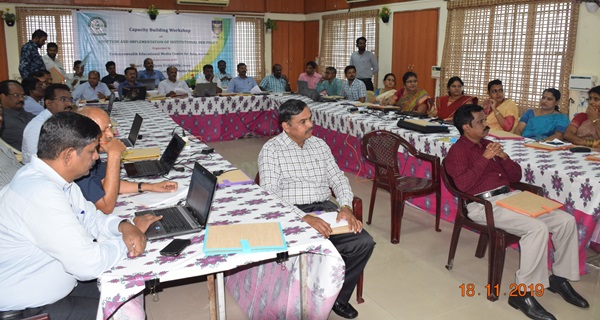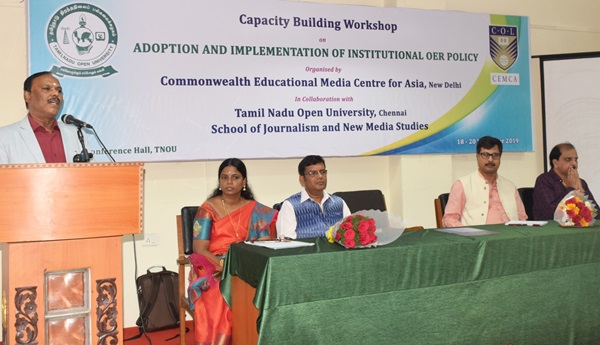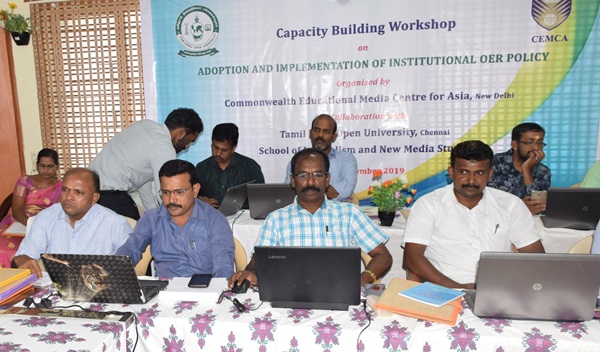Capacity Building Workshop on Adoption and Implementation of Institutional OER Policy
CEMCA in collaboration with Tamil Nadu Open University (TNOU) organised a three-day Capacity Building Workshop on Adoption and Implementation of Institutional OER Policy for University teachers and academicians from 18-20 November 2019 at TNOU. The workshop was facilitated by Prof. Mustafa Azad Kamal from Bangladesh Open University and Dr. Manas Ranjan Panigrahi from CEMCA. Thirty-Eight (9 Female and 29 Male) University teachers and academicians were participated.

Dr. P. Chitra, Assistant Professor from School of Journalism and New Media Studies of TNOU welcomed the gathering. Dr. Manas Ranjan Panigrahi, Senior Programme Officer from CEMCA delivered special address followed by felicitation address by Prof. Mostafa and the workshop was inaugurated by Hon’ble Vice- Chancellor Prof. K. Parthasarathy with his inaugural address. Prof. K. Parthasarathy insisted the staffs to equip themselves in the technology enabled learning. He also requested the participants to contribute on implementation for OER at TNOU. Further he appreciated the CEMCA’s support in policy development and capacity building on OER and Online education.

Prof. P. Thiagarajan, Registrar-TNOU gave a detailed presentation on TNOU its genesis, present structure, academic activities, programme of study, projects undertaken and various in-depth details about the University. He also mention a Meeting with all the Open University Vice Chancellors was conducted by TNOU in collaboration with CEMCA during 2015, Feedback from TNOU was requested by CEMCA about OER in 2018.

The Session started with Dr. Manas Ranjan Panigrahi requesting all the participants to find out the most three challenges in creating SLM material/educational resources. All the participants identified the three challenges and Prof. M. Murugan, Head School of Sciences picked the major comments from participants and presented to the group. The majority comments received from the participants are timely delivery, maintenance of quality and identification of respective course writers.
Prof. Mostafa dealt with Copyright and various aspects of copyright, and there was discussion and queries by the participants on copyright. Further, the workshop covers the concept of OER and openness, searching of OER and creating OER, and creative common licences and its use at individual, institutional level. All participants engaged in different activities in groups and each group produce one lesson using OER. At end of the 3 rd day most of the participants completed the Understanding of OER (https://learnoer.col.org/) course and earned a web generated certificate. The entire workshop was highly engaging with hands-on practice.


